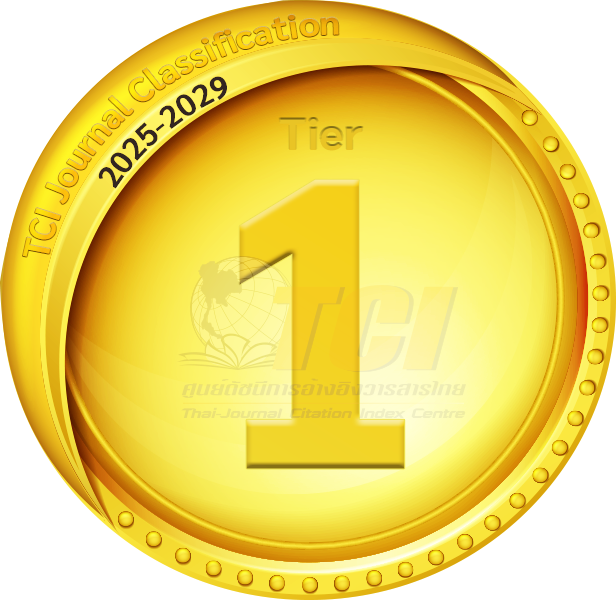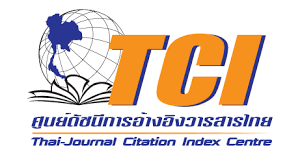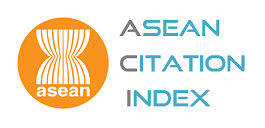Knowledge Management of Human Capital through the Learning Organization of the Agricultural Cooperative Federation of Thailand Limited
- Anucha Wittayakorn-Puripunpinyoo, School of Agriculture and Cooperative, SukhothaiThammathirat Open University, Parkkred, Nonthaburi,Thailand, E-mail: puanucha@windowslive.com
Abstract
Knowledge Management (KM) of Human Capital through Learning Organization (LO) of the Agricultural Cooperative Federation of Thailand Limited (ACFT) has been the most important strategy of human capital development. The research objective tried to investigate how knowledge management of human capital as factors affected the operational cost reduction of the ACFT. The study population was the members of the ACFT in the middle region of Thailand. It turned out with 27,186 individuals of ACT membership. Purposive sampling was applied as the sampling technique. It turned out to be 1,850 individuals of the ACFT membership as a sample size. The primary data were collected by questionnaire. Data analysis was applied Confirmatory Chi-square, Root Mean Square Error Approximation (RMSEA), Goodness Fit Index (GFI), Comparative Fit Index (CIF), and estimated parameters were calculated by Structural Equation Model (SEM) to measure the factors influencing the ACFT operational cost reduction. The research results showed that Chi-square, RMSEA, GFI, and CIF were equal to 4.150, 0.0054, 0.9643, and 0.971, respectively. The estimated parameters were calculated from SEM expressed two positive coefficients of exogenous variable---learning dynamic (β1) = 0.399 and technology application (β5) = 0.912 of human capital in the ACFT, which meant that learning dynamic and technology application had positive influencing factors on the operational cost reduction of the ACFT. The KM of the human capital of the ACFT is the main strategy of human capital development. Two categories of KM in the ACFT, which comprised of 1) learning dynamic and 2) technology application, had a significantly positive impact on operational cost reduction of the ACFT.
Keywords: Knowledge Management, Human Capital, Learning Organization
DOI: 10.14456/rjsh.2020.7
References
Belyh, A. (2020). The definition of Operational Cost: What are the operational cost?. Retrieved from https://www.cleverism.com/lexicon/operational-costs/
Bhatt, G. (2001). Knowledge management in organizations: examining the interaction between technologies, techniques, and people. Journal of Knowledge Management, 5(1), 68-75. https://doi.org/10.1108/13673270110384419
Boomsma. A. (2012). The Structurel Equation Modeling Research Report. In R. H. Hoyle (Ed.), Handbook of structural equation modeling. New York, US: The Guilford Publications.
Brown, T. A. (2015). Confirmatory Factor Analysis for Applied Research, (Methodology in the Social Sciences) (2nd ed). New York, US: The Guilford Press.
Bryman, A. (2016). Social Research Methods (5th ed). Oxford, UK: Oxford University Press.
Bukowitz, W. R., & Williams, R. L. (1999). The Knowledge Management Field book, Financial Times. New Jersey, US: Prentice-Hall.
Chareonwongsak, K. (2017). Enhancing board motivation for competitive performance of Thailand’s cooperatives. Journal of Co-operative Organization and Management, 5(2), 1–13.
Cook, L., & Leidner, D. E. (2019). Knowledge Management and Knowledge Management Systems: Conceptual Foundations and Research Issues. MIS Quarterly, 25(1), 107-136.
Davenport, T. H., & Prusak, L. (2000). Working Knowledge: How Organizations Manage What They Know. Boston, US: Harvard Business School Press.
De Long, D. (1997). Building the Knowledge-Based Organization: How Culture Drives Knowledge Behaviors. Retrieved from http://providersedge.com/docs/km_articles/Building_the_Knowledge-Based_Organization.pdf
Drucker, P. F. (1999). Management Challenges for the 21 Century. New York, US: Harper Collins.
Fabrigar, L. R., & Wegener, D. T. (1994). Exploratory Factor Analysis: Understanding Statistics. (1st ed). Oxford, UK: Oxford University Press.
Finch, W. F. (2019). Exploratory Factor Analysis. New York, US: SAGE Publications.
Kline, R. B. (2015). Principles and Practice of Structural Equation Modeling (4th ed). New York, US: The Guilford Publications.
Knowledge Management Tools. (2019). Retrieve from www.knowledge-management-tools.net.
Kohl, J., & Reisman, J. (1994). Explorations in Social Research: Qualitative and Quantitative Applications. Oxford, UK: Oxford University Press.
Kolb, G. J., Ho, C. K., Mancini, T. R., & Gary, J. A. (2011). Power Tower Technology Roadmap and Cost Reduction Plan. Sandia National Laboratories Albuquerque. Retrieved from https://prod-ng.sandia.gov/techlib-noauth/access-control.cgi/2011/112419.pdf
Lacobucci, D. (2009). Structural equations modeling: Fit indices, sample size, and advanced topics. Journal of Consumer Psychology, 20(2), 90–98.
Neuman, W. L. (2019). Social Research Methods: Qualitative and Quantitative Approaches (8th ed). New York, US: Pearson Education.
Schumacker, R. E., Lomax, R. G., & Schumacker, R. (2015). A Beginner’s Guide to Structural Equation Modeling (3rd ed). New York, US: Routledge.
Sharma, V. K. (2019). 5 Powerful Uses of Technology in Business Today, Retrieved from http://www.klientsolutech.com/use-of-technology-in-business-today/
The Agricultural Cooperative Federal of Thailand Limited. (2019). Retrieved from www.co-opthai.com
The National Statistics Office, Ministry of Digital Economy and Society. (2020). The Agriculture and Fisheries Information. Retrieved from www.statbbi.nso.go.th/staticreport
Wellman, J. L. (2009). Organizational Learning: How Companies and Institutions Manage and Apply Knowledge. London, UK: Palgrave Macmillian.

Indexed in


Search